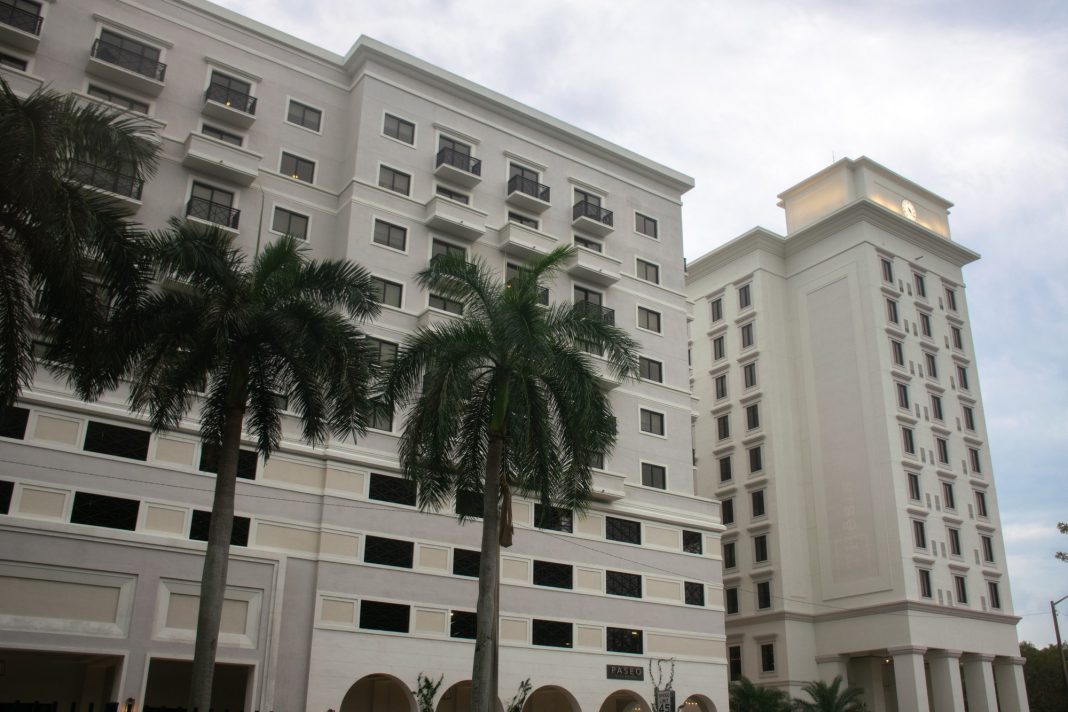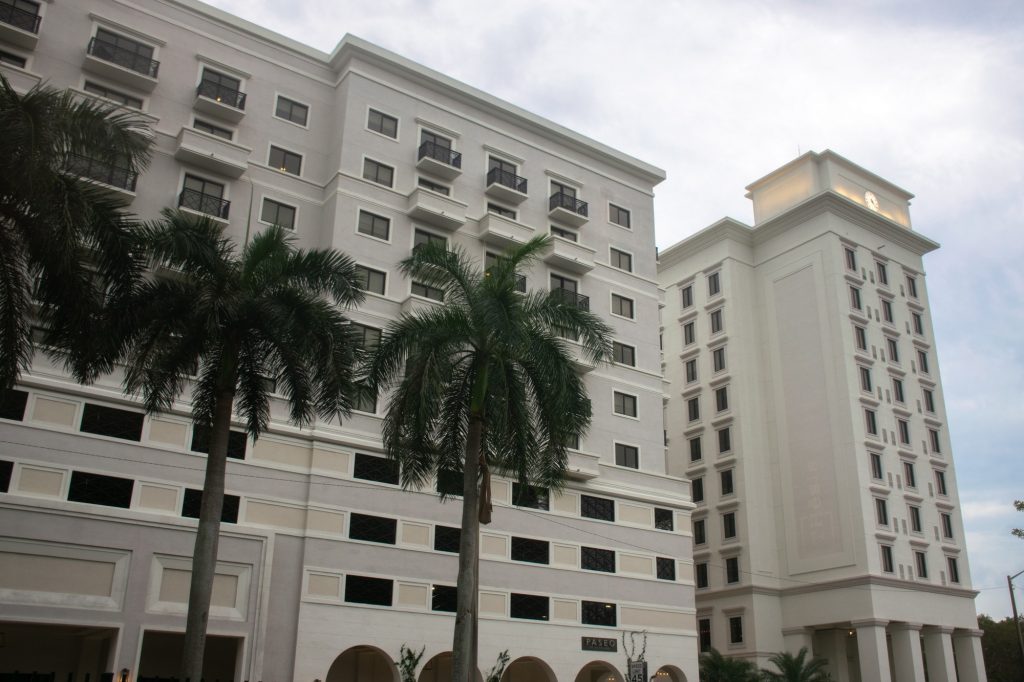

After a long first week of online classes, many new students are likely still outfitting their dorms in the freshman towers with Tik-Tok lights and Scarface posters.
But while their freshman cohorts are enjoying the view of Lake Osceola, some spring admits at the University of Miami are cramming groceries into mini bars and adjusting to life on the 20th floor at the Miami Marriott Dadeland hotel over three miles away.
“It’s honestly pretty nice,” said Erin Lanier, a first-semester marine biology and ecology major. “Difficulties getting to campus and meeting people is probably what I can most complain about.”
Some students are being housed in the THesis hotel, a shorter half-a-mile distance from campus.
Although not quite “the suite life,” most students said they are comfortable despite inconveniences like a shuttle ride to campus and difficulty meeting people. UM has assigned a shuttle to transport students to and from campus from 7 a.m. to 9 p.m., Monday through Friday.
Other complaints included difficulty storing groceries and having to pack lighter for a temporary home, but with daily gift-cards of $45 for living expenses, free laundry services and regular housekeeping, most said they feel the university did the best it could under the circumstances.
“It’s not ideal, but at least the university is working on a solution, and they found a temporary one,” said Jack Evans, a spring-admit majoring in biology and ecology. “The $45 card is definitely sufficient.”
Any cash surplus on the prepaid cards rolls over to the next day, which is one of the reasons that most students had something positive to say about their daily budget.
“A lot of the kids think that the $45 a day is the best thing since sliced bread, and that’s something that I can’t disagree with them on,” Evans said. “We all want to be on campus, but we’re kind of working with what we got right now.”
In addition to the daily budget of $45, students temporarily assigned to live in either Marriott or THesis hotels were given 20% off the original price of their on-campus housing.
At Miami Marriott Dadeland, students are being housed in one-bedroom units typically fit with two twin beds, with two students assigned to live in each. Most of the living accommodations are now being handled by the hotel itself.
Instead of kicking back in the Stanford-Tower study rooms, students at Marriott can usually be found hanging out with a few friends in one of their hotel rooms or sitting on chairs by the pool to mitigate the risk of spreading COVID-19.
COVID-19 regulations at the hotel stipulate that while unvaccinated residents must wear a mask at all times, fully-vaccinated individuals are merely encouraged to wear them. Social distancing guidelines remain in place.
Students said that while living in a building inhabited by tourists is not ideal, they are taking the proper precautions to make their environment as safe as possible.
“I would say somewhat safe,” said Lanier, explaining her comfort level sharing a floor with traveling strangers. “They’re all coming from different places, and who knows where they’ve been traveling?”
According to its website, Miami Marriott Dadeland promises high frequency public cleaning and disinfection as well as signage throughout the hotel reinforcing its masking guidelines.
UM Housing and Residential Life (HRL) has assigned each hotel its own community assistants, tasked with guiding and supporting the first-semester students inhabiting Marriott and THesis, while individual conference rooms have been temporarily converted to group study-rooms.
“HRL has worked closely with these area hotels to make the temporary hotel stay as comfortable as possible,” the university said in an email. “Detailed information has been communicated to students temporarily living in the hotels.”
Overcrowding on campus may become an even bigger issue when Hecht Residential College is closed in 2022, followed by Stanford Residential College in 2024.
The closure will leave the university with decreased on-campus housing capacity until the planned completion of Centennial Village. The new facility is scheduled to open to first-year students in two stages, with a partial opening in 2024 before its completion in 2026.
“Although there will be less housing available on campus over the next four years, HRL remains committed to working closely with sophomores and upperclassmen to locate off-campus housing options and will actively communicate with students placed on the housing wait list throughout the summer,” the university said.
The university plans to relocate students currently housed in hotels to on-campus housing based on when they submitted their housing application and other considerations such as coursework and individual needs relating to moving on campus.
Until then, tourists staying at Marriott or THesis can expect some noise from the bright-eyed teenagers decked out in UM merch hanging out next door.
“We got a few complaints from security the other day, we were too loud,” Lanier said. “It’s hard to keep the noise down.”
Rahul Kumar and Anurag Aka contributed to the reporting of this story.





